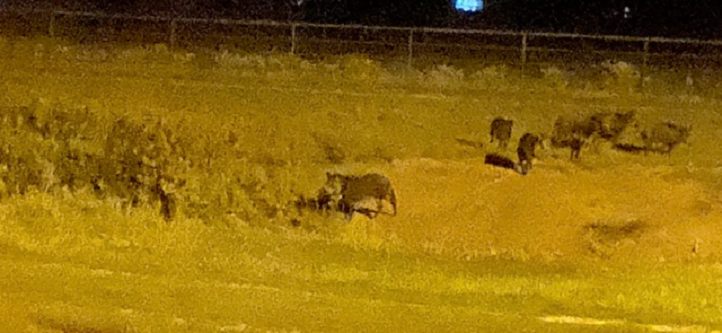October 15, 2024 – The Texas A&M AgriLife Extension Service plays a vital role in addressing the issue of wild pigs (also known as feral hogs) in Texas. Wild pigs are a major problem in the state, with an estimated population of over 2.6 million, causing extensive damage to agriculture, natural resources, and property. Recognizing the significant ecological and economic impact of these animals, the Texas A&M AgriLife Extension focuses on education, management, research, and collaboration to help control and mitigate the problems associated with wild pigs.
Ecological and Economic Impact: Wild pigs are considered an invasive species, and their presence leads to a range of negative effects. They root up crops, destroy pastures, eat seeds and small animals, and damage native vegetation. Their behavior disrupts local ecosystems, outcompetes native wildlife, and contributes to soil erosion. From an economic perspective, the damage to agriculture can result in losses of millions of dollars annually for farmers and ranchers. Moreover, wild pigs pose a health risk as they can carry and spread diseases that may affect livestock, pets, and even humans.
Education and Outreach: The Extension Service provides a variety of resources to help Texans understand the behavior, biology, and impacts of wild pigs. Through workshops, online courses, printed guides, and field days, they educate landowners, hunters, and other stakeholders on how to effectively manage and reduce wild pig populations. This educational approach aims to empower individuals with the knowledge needed to implement practical and effective solutions on their land.
Management Strategies: Wild pig management requires a strategic and integrated approach. The Texas A&M AgriLife Extension promotes several control methods, including trapping, hunting, fencing, and habitat modification. Trapping is one of the most effective ways to manage populations, especially when combined with other control measures. The Extension Service provides guidance on how to set up, bait, and monitor traps, as well as tips on hunting techniques and the use of exclusion fencing. They emphasize the importance of continuous effort, as wild pig populations can quickly rebound if control measures are not sustained.
Research and Data Collection: The Extension Service is actively involved in research to understand wild pig behavior, ecology, and the effectiveness of various control methods. Studies on population dynamics, disease transmission, and environmental impacts are essential to developing effective management strategies. The findings from this research are used to improve best practices and provide science-based recommendations to the public.
Partnerships and Collaboration: Effective management of wild pigs requires cooperation beyond individual properties. Texas A&M AgriLife Extension collaborates with landowners, state and federal agencies, non-profit organizations, and other stakeholders to promote coordinated management efforts. By fostering partnerships, they can address the issue of wild pigs on a larger scale, encouraging practices that work across property lines and regions.
Through a combination of education, practical management techniques, research, and collaboration, the Texas A&M AgriLife Extension Service helps Texans tackle the persistent challenge of wild pigs. Their efforts aim to minimize the economic and ecological damage caused by these invasive animals, supporting the sustainability of agriculture and the conservation of natural resources in Texas. For more information on this or any other agricultural topic please contact the Hopkins County Extension Office at 903-885-3443 or email me at [email protected].






